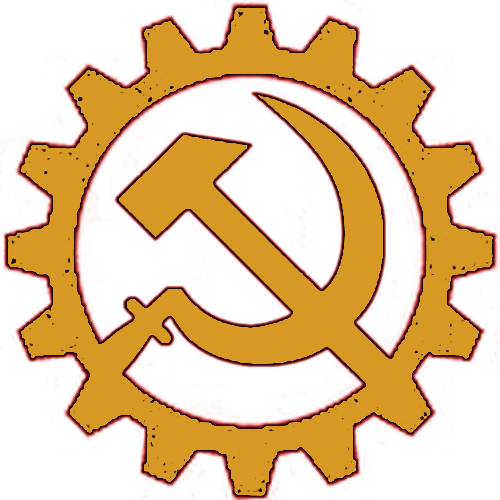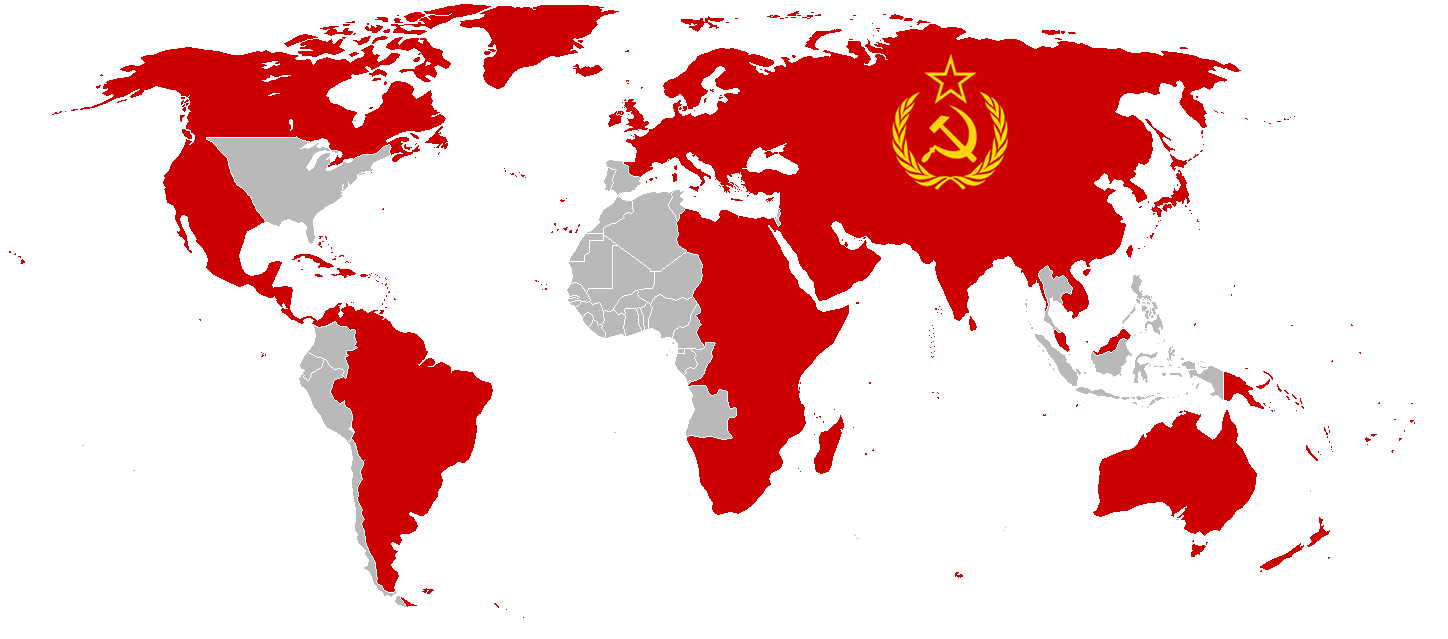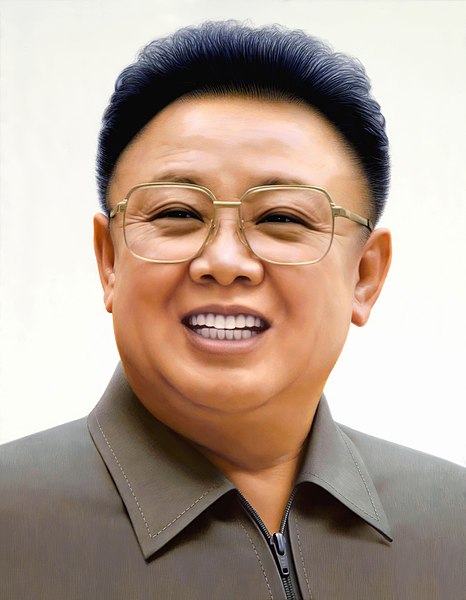- cross-posted to:
- memes@lemmy.ml
- cross-posted to:
- memes@lemmy.ml
Competition even in theory:
I won the competition, now buy my linen at 10x its value. Btw it costs 1,000 years of the average salary to start up a competing business, good luck lol
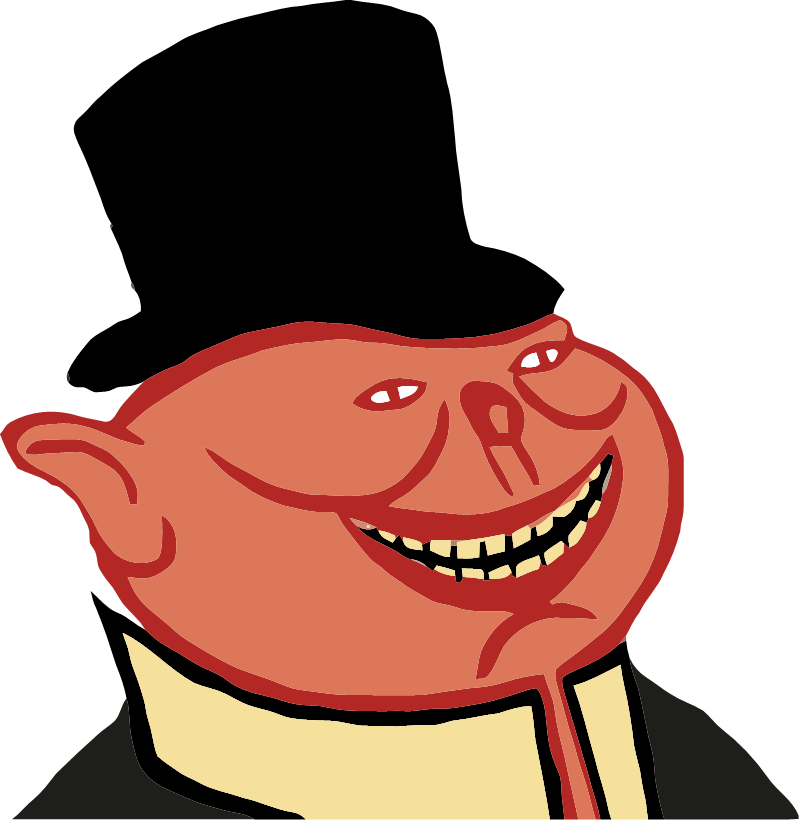

Capitalism only works on paper, it doesn’t take human nature into account
No, it doesn't even work on paper. We don't need to build two competing factories to see what is best. We invented science. Somebody can just make a graph. It's that easy
I dunno.. even on paper the idea of infinite growth in a system of limited resources doesn't seem to work ..
capitalism only works if you just really hate feudalism but also want to keep the rich people in charge which is what it was designed to do. In much the same way that the united states of America was only really created to form a singe legal entity to be responsible for sharing the debt of the revolutionary war accross the states and everything since is just mission creep
which is a large part of why the American constitution is so messed up and such a dysfunctional and stupid legal foundation of a country, the country wasn't really designed with maintainability or long term existence in mind from the start
keep the rich people in charge which is what it was designed to do
Under capitalism didn't the monarchs that were formally in charge lose power to the new capitalists though? For one, King George losing the colonies. I'm guessing a lot of the founding fathers probably were descended from feudal lords though.
Well George Washington wasn't poor. The american revolution isn't a great example though as on top of being a bourgeoise revolution it was a break away of a colony. Added to that the fact that British society was at that point primarily capitalist with feudalism having been gradually whittled away by enclosure.
Britain in general is not a good example of this as the transition from feudalism to capitalism didn't happen in a clean one then the other switch but by a more gradual process and Britain still has feudal elements like the land largely being owned by the aristocracy, a monarch, and a legislative body with a power over which laws are passed with heritable seats for members of the aristocracy. That said the aristocracy weren't what they were and many are flat broke. Britain is a complicated case study for my point here
The French revolution is a much better example as it was one group of rich people overthrowing the aristocracy and abolishing the traditional rights of the aristocracy because they were ideologically motivated to by liberalism and then proceding to establish a capitalist economy
(the socialist movement is in many ways recognisably older than liberalism for example the preaching of John Ball in the 14th century and was opposed to feudalism so in the french revolution and english civil war was noticably present in the anti feudalism movement but the movements themselves weren't socialist) - like how socialists also revolted against the shah but the movement ended up being islamist not socialist
The same is true of many implementations of communism. The problem isn't the system, the problem is people, and people try to corrupt the system to their benefit.
How has what I said got anything to do with liberal ideology? If anything, the implication of what I said is that we need more authoritarianism, in order to stop people fucking around.
So... you're a fascist?
Communism provides a solution to capitalism by being a more democratic system, both politically, and economically. Not by being more authoritarian.
No I'm asking how what I said had anything to do with liberal ideology. Can you stay on topic?
Most communist nations have not been very good when it comes to democracy. Not that they couldn't be, but it obviously isn't an inherent property.
Do you know what liberal means or do you think it just means Democrat?
Again, that isn't an answer to my question. And no I do not think liberal means Democrat, I'm not in the US.
You didn't ask a question besides "can you stay on topic," which was already bullshit because @Redderthanmisty@lemmygrad.ml was responding to your "we need more authoritarianism, in order to stop people fucking around" comment.
My question was how me saying people are the problem has anything to do with liberal ideology? My statement about authoritarianism was to point out that what I said before was definitely not liberal.
What would be liberal would be to say it's a good thing that people can fuck around and twist things to their benefit, as if that was the system working as intended. I'm not saying that. I'm saying systems aren't working, and the problem is people.
If you keep framing the problem as caused by the system, then you'll be blind to the people problem in whatever system you implement to replace it.
Yeah so first off, we need to acknowledge that people are social animals. We aren't special creatures separate from our evolution. As social animals our outlook is determined by our direct relationships with other people and our place among our community and society at large. This directly informs not only our ability to live and survive and reproduce, but our kins ability to survive and also reproduce.
Here we see the rough outline of the beginning of larger society from the base unit. It's an incredibly more complex topic than this but we must be brief. What's interesting here is that we also see the beginnings of class once women start being traded. Again very complex and requires books, but let's keep general trends in mind as we are supposed to when discussing macro concepts (as a side, that's another point liberals tend to forget - the need to focus on overall trends, which is necessary for the discussion of massive economies and history over time). So now we have class within society which also directly informs our direct relationships and relationships abroad.
And this is a self sustaining mechanism (because we are social - that is to say we care about our relationships and thus shared interests because they benefit us individually or our kin) that changes very slowly over thousands of years due to many factors (reading a book is again required). We can use the European model of history and generalize that dominant classes tend to change hands every couple of thousands or hundreds of years. Because it is self sustaining (somewhat - civilizations can fluctuate, for example the collapse of the USSR*, or the existence of the southern American slave economy within a capitalist world), a dominant class can effectively shape its own society for a long period of time. There are obviously a billion conditions that can determine what state a society is in at any given time, but again, we are concerned with the model here, or in other words the general trend.
So in this we start to see how people actually behave through the unification of biology and human history. It's extremely rough and in the works but strong enough that we can reject any suggestions about human behavior that fall short of the standard. What this means about "bad people fucking around" is that this is a view of people in a very narrow view of history. As class changes how people act (again, generally) accordingly to their relationships, in a dictatorship of the proletariat you expect over time the likelihood of bad actors (1) appearing to decrease and (2) the likelihood of succeeding at whatever they do to decrease as well.
*For a quick look at the fall of the Soviet Union (a sample size of 1, but important nonetheless) I recommend a video by either Hakim or Paul Cockshott.
This post was paid for by Xi bucks. Yes my social credit score is through the roof. Comrades may reproduce this post for free without referencing the writer.
Not going to answer subsequent questions. They can be answered by further inquiry to proper sources.
Whether you are liberal has little to do with how you see yourself or with what you profess to be. I am a Marxist but if I say something liberal, I either need to correct it or I will become a liberal. I must rely on others' criticism and my own self criticism to spot liberalism, and to correct my ways.
If I repeatedly did and said liberal things, it wouldn't matter if I still called myself a Marxist because that would rest on an idealist version of myself – and preferring the ideal over the material is theoretically liberal, not Marxist. I would be liberal, not Marxist in praxis (liberal thought and liberal action), regardless of what I wanted to be or thought I was.
Marxists are dialectical materialists. Which is a theory of change or of becoming. There is no 'stasis' or things, only processes, relations, and various levels of abstraction: nothing stands still. I am an individual, a worker, a prole, a human. I am always in a state of becoming. Either becoming a Marxist or becoming a liberal or, god forbid, becoming a fascist. The latter isn't very likely but it would happen if I were to start doing and saying fascist things even if I didn't like to be called it.
According to Bertell Ollman in Dance of the Dialectic: Steps in Marx's Method (2003, pp. 88–91) when Marx does 'abstraction', he moves between seven levels of generality:
- The individual person, you or me as unique,
- People in general, as they act and behave in the last 20–50 years,
- Capitalism as a political economic system,
- Class society,
- Human society,
- The animal world,
- Material nature.
Marx/ists use/s all seven, but mainly the first five. Others flit between all seven, but inconsistently and incompletely.
The liberal/bourgeois framework works primarily on two levels. The first, the abstract, unique individual. And the fifth, the abstract human society. Hence liberals talk about people or humanity as a whole. Rarely, if ever, will liberals – or, to be trite people looking through a lens of liberal ideology – abstract to another level of generality.
So when you abstract to the level of individual people or to the level where 'human nature' appears coherent, when you refuse to abstract to the other levels of generality, you are, whether consciously or subconsciously, being liberal.
Notice how Giyuu traced through the history of human society to explain that class society arose at a certain point, and that humans in different class societies display a different kind of 'nature' than those in other class societies or in pre-class society. Giyuu concluded that under socialism, human relations will develop until the motivation e.g. for what we might call greed and corruption will dissolve. 'Human nature' will again look different to what it looks like under capitalism/class society.
It is not possible – at least, it will be very difficult – to see or accept what Giyuu describes without opening up to the idea of different levels of generality, beyond the individual or the human society. To reject or dismiss the other levels of abstraction, to insist on using only two, is almost if not by definition, to be liberal.
Edit: rejecting somebody's argument for 'framing the problem as caused by the system' is the type of dismissal/rejection that I'm taking about in the last paragraph.
Thank you for your in depth reply, while I don't fully agree with everything I do appreciate the insight. Also tying in @Giyuu's comment, which seemed to be a summary of a longer argument but missing important detail.
I don't agree with your definition of liberal. Stealing a definition off the internet, I think the most appropriate one in this context is:
a supporter of a political and social philosophy that promotes individual rights, civil liberties, democracy, and free enterprise.
Loosely applying those 7 stages, I'd say it covers 1) The individual, 3) Capitalism, and 5) Human society. So I agree that the definition primarily covers 2 levels of generality (1 and 5).
However, to say that "a liberal only abstracts to these levels of generality" is nonsense. It's like you're taking a stencil of the definition, then saying anything that fits inside the stencil meets the definition, even if it looks nothing like the definition.
I wrote a short, simple statement:
The same is true of many implementations of communism. The problem isn’t the system, the problem is people, and people try to corrupt the system to their benefit.
You've assumed that because I only mentioned "the system" and "people" that I am talking in stages 1 and 5 (I would argue it's more 1 and 3). By applying your stencil that means I'm liberal (or what I'm saying is, and because I said it I am). However, to expand it and flavour it with your stages, I could say:
In any group of people working together, there will always be the potential of an individual intentionally corrupting things for their benefit.
The point of what I'm saying is that there will always be the potential of an individual (1) stepping out of line and screwing things. That could cover a political system (3), inter- or intra-class relationships (4), or social status (5); an individual can poison any or all of them. You may argue that a different political system could reduce the likelihood of individuals stepping out, with greed and corruption dissolved, but they will never truly be gone as people as individuals will always have that capacity.
Furthermore when you look at this statement it all but contradicts the definition of liberal - "individual rights" being the first tenant, when I'm saying the individual is the issue. I did stop short of saying individual rights aren't important, however I'm clearly pointing towards the need for limits on those rights. So I firmly reject labelling my initial statement as liberal - it might fit the stencil, but it doesn't fit the actual definition.
Thanks for responding. You’ve made some good points. Let’s keep this conversation going as I’m enjoying it and I appreciate good faith challenges. Before I address the other points, I’ll recommend Marx and Engels’ The German Ideology if you want some of the detail that will flesh out Giyuu’s comment.
To clarify, I wasn’t defining liberalism. I was describing some characteristics of liberal/bourgeois world outlooks: the tendency to treat the individual as the most important unit. This tendency is dialectically related to the features of liberalism that you identify in the quote.
And it’s a tendency not a universal law. To a Marxist, everything is contradiction; which leaves open the possibility that liberals will contradictorily elevate the individual and e.g. capitalism or human nature, etc, at the same time.
There are many types of liberalism: classical liberalism, neoliberalism, ordoliberalism, so we can only speak in general terms when talking about liberalism in general. Still, I agree that ‘individual rights, civil liberties, democracy, and free enterprise’ are common to different liberalisms.
Sometimes liberal thought abstracts to the level of humanity. This is often faulty as liberals tend to ascribe current features of human relations to ‘human nature’ in general. In reality, those features are bespoke to the political economy, which is either class society or capitalism.
Liberalism prefers to universalise; whereas Marxists insist that processes and relations are historically contingent i.e., for example, people act in a certain way because their society is set up in a certain way.
I agree that
say[ing] that “a liberal only abstracts to these levels of generality” is nonsense.
Although I may get close to saying this kind of thing in the heat of an argument, I didn’t say it in this thread. You should only use quotation marks in this way for direct quotes. I said (emphasis added):
Others flit between all seven, but inconsistently and incompletely. … The liberal/bourgeois framework works primarily on two levels. … [R]efus[ing] to abstract to the other levels of generality, [is], whether consciously or subconsciously, … liberal.
Let me address your definition of liberalism and application of the seven levels of generality. All four features, ‘individual rights, civil liberties, democracy, and free enterprise’ can be viewed from multiple levels of generality. I assume you say that the definition involves the third level of generality, capitalism, because it mentions ‘free enterprise’? That’s not necessarily the case.
Liberals often frame ‘free enterprise’ solely as a relation between individuals. It’s a mainstay of legal argument in that persons entering into contracts are deemed to have equal bargaining power. So if they didn’t like the terms, they shouldn’t have entered into the contract. It tends not to be for the courts to strike a fair bargain retroactively. As Pashukanis argues, the legal subject is the commodity owner ‘abstracted to the heavens’. It takes conscious effort to look at free enterprise other than through the lens of individualism. I am glad to see you do that; it suggests you are willing to move away from the liberal perspective.
Even if you reject that you are looking through a liberal lens, and indicate that you are willing to move past it, the rest of your comment makes several liberal assumptions. I’ll stick with the levels of generality idea to address the issue. You said:
The same is true of many implementations of communism. The problem isn’t the system, the problem is people, and people try to corrupt the system to their benefit.
You’ve [i.e. me, redtea] assumed that because I only mentioned “the system” and “people” that I am talking in stages 1 and 5 (I would argue it’s more 1 and 3)
I haven’t assumed anything, here. I've analysed. When you say ‘system’, you are talking about capitalism (level 3) (what you said would not make sense to me otherwise). I’m suggesting that your comment is speaking from the position of liberalism because you are emphasising the individual over the capitalist mode of production (the ’system’) or over the logic of class society. You next said, reiterating my point:
I could say:
In any group of people working together, there will always be the potential of an individual intentionally corrupting things for their benefit.
Again, this emphasises the individual (this could be an example. I’m unsure if this is what you would say). A Marxist (illiberal by definition) would say that while an individual has some power to make individual decisions, only certain options are logically available. Those options are determined by the political economy i.e. class-based capitalism.
We’re not really talking about people working together. Capitalism already entails a socialised mode of production (i.e. a division of labour, which entails a certain level of cooperation). (Again, it takes a liberal perspective to emphasise ’individuals’ working together in a socialised mode of production.) The reason that individuals working within the socialised mode of production of capitalism can game the system to their benefit is because this is hard-wired into the rules of the game.
You also said:
The point of what I’m saying is that there will always be the potential of an individual (1) stepping out of line and screwing things.
No substantive argument from me about that. The question is—does your analysis pre-suppose that the individual has primacy or does it pre-suppose the primacy of the class-based political economy of capitalism? Liberals emphasise the individual. Marxists accept that the individual has a role but insist that this is subservient and dialectically related to the rules of the ‘system’ (capitalism or class society, depending on the argument).
If liberals move away from the individual, it tends not to be to look at the level of the system or of class society but to ‘human nature’. This can be applied to your statements about ‘people’ because, at first, it implied that people in all times and places will act in the same way, according to human nature:
I’m saying systems aren’t working, and the problem is people.
You later appeared to move away from this claim:
You may argue that a different political system could reduce the likelihood of individuals stepping out, with greed and corruption dissolved, but they will never truly be gone as people as individuals will always have that capacity.
I’m unsure if you’re summarising what I said or whether you agree. If you agree, it contradicts you:
saying the individual is the issue.
This is only the case when generalising at the level of the individual or of human nature. ‘Bad’ behaviour, e.g. corruption, is perfectly acceptable and even encouraged within capitalism. So too is acting within and according to one’s class interests (favouring some interests over others, or: corruption) even if one consequence is personal enrichment.
The most straightforward way to settle this is to answer a question in the positive rather than the negative: if you’re not a liberal, what are you? I’m a Marxist.
I’m happy to address your final point, ‘when you look at this statement it all but contradicts the definition of liberal’, but I’m not wholly sure what you mean, and I don’t want to misrepresent your view.
From what you’ve said, I think you might be quite amenable to Marxism/communism. The German Ideology, cited above, will answer some questions but it’s not the easiest text to begin with. For that, I would suggest, in this instance, The three sources and three component parts of Marxism.
Authoritarianism isn't a real thing and your belief that it is cements you as a
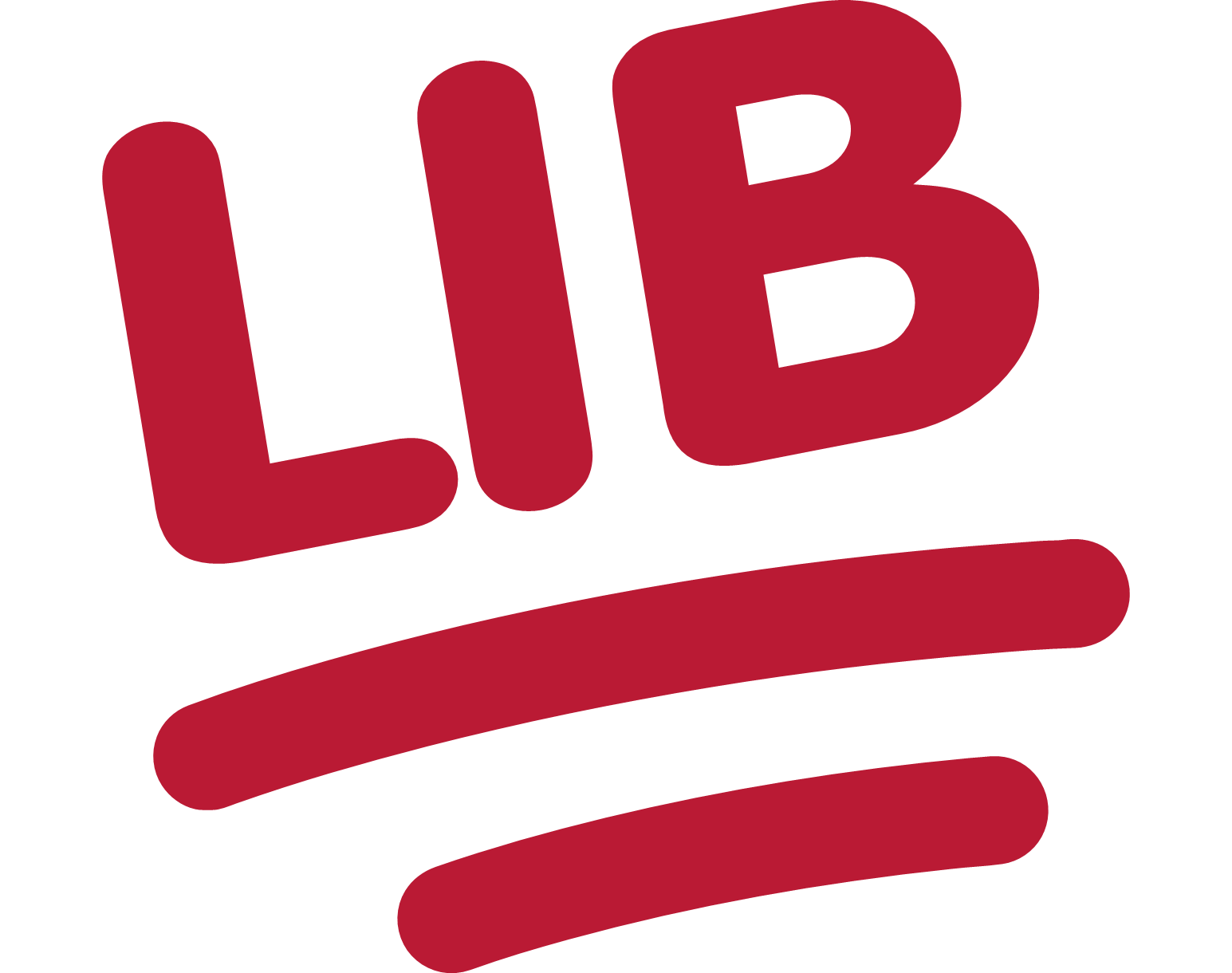
I didn't realise you were the arbitrator of what is and what isn't. Obviously, I defer to your judgement.
I tried to get a meaningful argument out of you, but it's very apparent you aren't capable.
you come into my house, drop lib shit all over the floor and then dare talk down to me? I'll have you know that I

I didn't shit anywhere, you just found a mess and started rolling around in it.
The belief in "human nature" that people's ideas and beliefs and nature shape the world, and not material conditions is a core part of liberalism
yup. Human nature as an absolute and static thing is garbage philosophy. Marx had it right in Theses on Feuerbach and Capital. https://www.marxists.org/archive/fromm/works/1961/man/ch04.htm
[T]he human essence is no abstraction inherent in each single individual. In its reality it is the ensemble of the social relations.
The same is true of many implementations of communism. The problem isn't the system, the problem is people, and people try to corrupt the system to their benefit.
People everywhere have always been exactly the same since the dawn of time. Mitochondrial Adam and Eve were literally McDonald’s franchise owners. I am extremely intelligent.
I mean, not to be glib. It does look like we are functionally then same as our recent ancestors. Like, hundred thousand years ago on the plains of Africa the homo-sapians there would be indistinguishable from any person off the street today after a wash and shave.
It's not a question of of similarity in terms of how we look, or our intelligence. It's a question of whether "human nature" is an immutable thing that exists. Marxists say that it doesn't, it's merely a consequence of material conditions, and that changing material conditions would change what people call human nature
I mean, we do have some nature. It just isn't as pronounced as people like to talk about. And it specifically isn't what capitalism calls it.
No, that wasn't invented till like the 1600s. There were signs of extensive and complicated trade networks as far back into prehistory as we can look. They simply didn't form the moral basis of society like we see in capitalism
And if capitalism had a beginning, that would mean that it could also have an end?
People everywhere have always been exactly the same since the dawn of time. Mitochondrial Adam and Eve were literally McDonald’s franchise owners.
Nothing to do with what I've said, but ok.
I am extremely intelligent.
Yes, you are!
You said that communism can’t work because of human nature, thereby implying that everyone everywhere has always been exactly the same, ignorant of the fact that the concept of private property was invented about five thousand years ago in a few isolated places. For hundreds of thousands of years and for the vast majority of people who have ever lived, they never knew anything about private property and probably would have considered the idea absurd (which it is). No private property = communism. If we can say that anything is human nature (nothing actually is, since human nature changes depending on context), it would actually be communism. Capitalism is not only collapsing right now because it’s a terrible idea, it’s collapsing because of its fundamental contempt for human beings and even nature itself.
I didn't say that communism can't work. I'm just saying people try to fuck it up for their benefit, whatever it is.
Maybe people will get better over time and be less likely to do that. Really though I think it's just something we have to account for, by developing robust social systems that can't easily be abused, not without being caught.
People are self interested yes. Eliminating rent seeking behavior that is enabled by private property makes the social system harder to game for helping themselves at the cost societal good. Communists want to eliminate private property for this reason. Does this mean that all anti social behavior will be eliminated? No, but most crime is committed due to lack of economic opportunity. Politicians not doing what is in the interest of the people that elected them is often due to capitalist funded lobbying firms. Not having private property addresses those problems and other problems that are caused by those problems.
Marxism has an answer to the idea of people getting better. "Human nature" as you see it is a result of material conditions. If we change the material conditions we change "human nature"
I didn't say that communism can't work. I'm just saying people try to fuck it up for their benefit, whatever it is.
The same was true of capitalism when it was getting started in rural late medieval England, but here we are.
Maybe people will get better over time and be less likely to do that. Really though I think it's just something we have to account for, by developing robust social systems that can't easily be abused, not without being caught.
Democracy in every home and workplace (also known as communism) should take care of this.
“Maybe people will get better over time”—it’s certainly a choice people have. We can kill ourselves with capitalism or build a better world for everyone with communism.
People, particularly the wealthy, try to fuck things up for their benefit because capitalism has so deeply engrained in them a sense of rabid and egocentric individualism, and has taught them that having more than others makes them good, and if they have more than others it’s because they’re good.
The poor are “abusing” social systems because many of those systems lock them into poverty, where they’re forced into a game of economic limbo, which withholds any/all benefits if they earn too much (which is still not enough to live on), or they do things to receive more support than what the state says they are owed with the goal of having an acceptable standard of living, if they can even achieve that.
Neither of these problems will be solved by people “getting better over time”, and in fact, we are all observing these things getting worse and worse. Reforming social safety nets can maybe provide a solution to the latter problem, if they’re drastic enough. But, imo, communism provides the solution to both.
The same is not true of implementations of communism. Socialist states at their best implement systems that encourage the natural human drives for cooperation and compassion, and in the two largest cases, China and the Soviet Union, it led to the fastest gains in quality of life in history
Socialist states at their best
And capitalism at its best does not distort the value of everything. Yet the people problem is so endemic that the value of everything is distorted.
Which state current or historical shows capitalism at its best in your opinion?
The USA? Netherlands? Colonialist Britain?To look at its best you'd have to look at individual moments. Just like looking at the successes of communism you'd have to look at individual moments, rather than the overall state of the country now. The people problem is endemic everywhere, so instances where things haven't been twisted are rare.
Yes, that's why I mentioned historic as well. Which country in which period of time would you say best exemplified capitalism at its best?
1980s social democratic Sweden? 1990 miracle of Han South Korea? Current Singapore?I don't really have an opinion of any country being the best example. You'd probably be better off looking at individual transactions to find good examples - Capitalism is all about transactions at the end of the day.
An example of things working as they should could be found in microprocessors. ARM design almost all of the processors in our phones, but they don't actually manufacture them. They license their IP to Qualcomm, Samsung and others who use and modify the designs to create the devices we buy. The end consumer price of the phone is definitely over-inflated, but the supply line transactions for those components work in a novel yet reasonably fair way.
Granted, there are many more examples of things not working as they should. That's because people fuck around and do things they shouldn't, because it benefits them somehow. Capitalism doesn't prevent that, but it isn't the cause of that, people are.
Okay, let's talk about transactions then. You mentioned a good B2B example of a good transaction that benefits business entities that engage in it.
Can you give me a good B2C example of a good transaction in capitalist societies that benefits consumers?Can you give me a good B2C example of a good transaction in capitalist societies that benefits consumers?
Selling food discounted at or around its cost price just before its about to expire. Or any situation where a reasonable price has been haggled, however this has gone out of fashion.
Alright, now we have a concrete example of a good transaction in capitalist society. It's buying almost expired food at discounted prices. I remain unconvinced though that it is an example of a good transaction - many others and I have waited until the food is almost expired to buy them at discounted prices. The store is forced to refrigerate and carry the good until it almost expires, and I am forced to wait until the food has gone almost bad to get it. The same transaction could have happened when the food was fresh. The store would be getting the same amount of money, increase their stock rotation and I would be getting fresher food.
As a show of good faith to demonstrate that I'm not trying to debatebro you, let me give you an example from a socialist society. Cuba. Cuba imports frozen chicken parts from the United States (Tyson Foods, Inc.) because they determined that the US can more efficiently raise and process poultry than they can. In return, Cuba sells paintings to America as Cuba has a thriving art scene encouraged by the state. The end result is that Cubans can draw art and eat chickens for a cheaper price (labor hours) than they would if they had to raise chickens themselves. This is not a unique transaction - Cuba has been engaging in this type of trade with many countries such as the former USSR and China for almost a century for other products such as sugar which Cuba can grow more efficiently due to their climate.
I have to say that I remain unconvinced that the capitalist mode of trade is better for the individual. You demonstrated that it is better for businesses such as ARM, Samsung, and Qualcomm, but the benefit for you or me, individual human beings, seem lacking.The benefit to people from the business trade is getting products that otherwise would not be possible. ARM does not have the capacity or skill to build microprocessors, Qualcomm and Samsung don't know how to design them (in fact, at one point ARM had to build some just to show them everything they were doing wrong with their production designs). Under a communist state, there's every likelihood that ARM wouldn't exist - there wasn't a huge need for it before the market for smart phones exploded, so the development of their processors would likely have been stopped in favour of other technologies, and wouldn't have been sat there waiting to be utilised for phones.
With the expired food transaction, the same transaction could not be made earlier - not if the price was at cost. My suggestion was essentially "sell it to get back what you paid for it", which wouldn't account for the overhead costs of running the business. A normal transaction done earlier must cover these costs, at the very least. The issue is that a normal transaction does a lot more than cover these costs - that's people abusing capitalism.
Ultimately though I'm not arguing that capitalism is better or worse. I'm just saying that people are the problem, and if you frame the system as the problem then when you deal with it you're still probably going to have a people problem, in some shape or form.
Expired food transaction prices are closer to cost. It is the necessity for a profit margin that drives grocery stores to sell at a higher price (or as I call it, cost + profit price). Now, you may say that profit margins are bad for grocery stores, which is true (2~3%), which cannot account for discount on expired food (10~30%). However, The grocery store overall margin does not account for the cost of individual items. In terms of percentages, markup on dry goods (cereals, pasta, etc.) and canned goods are lower while the markup for prepared food, frozen food, and bakery goods are more than twice that of dry goods. Which items actually do go on sale then? The ones with higher margins. . The discounted price for fresh food is absolutely possible when you take profit margins out.
For the microprocessors example, I'll use the same example as to why that mode of complex production is more likely under communism than capitalism. By your account, ARM designed microprocessors while there wasn't a huge need for it, but the market for smart phones exploded later. Does this make sense? No, it doesn't make sense under capitalism, so let's look at the history of it. ARM (Acorn/Advanced RISC Machine) financially functioned by being funded by the BBC (British Broadcasting Corporation). ARM's nickname in the UK used to be BBC Micro! I don't think I need to go on about how communists are all about state-funded enterprises, so I rest my case.
An example of things working as they should could be found in microprocessors. ARM design almost all of the processors in our phones
This is especially hilarious because the whole reason RISC-V has been developing rapidly is because the ARM monopoly isn't an example of things working as they should, and companies want an alternative
ARM expanded upon the RISC-IV instruction set because it hadn't been updated since 1988. RISC-V was introduced in 2015, however if ARM hadn't been successful in the years preceeding that there's every chance RISC would still be lying dormant.
You're right that open source ISA's are generally better, and hopefully ARM will switch to RISC-V, but that really is a separate matter to ARM's viability under different societal systems.
Just jumping in here to say, look up the concept of 'commodity fetishism'. The value of everything is distorted because capitalism is commodity producing society. This is explained in the first three or four chapters of Capital Volume I.
There's no such thing as human nature. What you call human nature is the result of material conditions
Lmao, I literally read this exact same "argument" from a different user in a different thread five minutes ago.
You guys really need to come up with some new material.
Your idea? Its a core belief of liberalism. Maybe take it up with Rousseau?
Proud centuries old liberal tradition of not reading, 300 years and ticking.
Yeah, you definitely came up with this groundbreaking idea all by yourself

I mean, in the the liberal west used violence to replace comunism with a right wing dictatorship. Yes.
However that isn't really a flaw in comunist theory
Yes. Basically, any time someone tries to do something nice for everyone and introduce communism, some people or other come along and fuck it all up. Then they call their fucked up monstrosity "communism" to further damage the credibility of any meaningful progress.
Those people are the same people who fuck up capitalism and distort it for their benefit. Maybe it's easier for them to do under capitalism, maybe that's just what they're used to and they don't want to change, but if all you do is deal with capitalism as the problem then you're still going to have a people problem with whatever comes next.
You call them capitalists because they were successful at fucking up capitalism.
I think you are missing some necessary historical context to follow along with what they're saying here. Capitalists (through military, CIA, NATO etc) have routinely engaged in mass killings of communists around the world. One specific instance being the murder of 1 million+ people (communists) in Indonesia between 1965-1966 all organized and funded by the US. There's a great book about this called The Jakarta Method: Washington's Anticommunist Crusade and the Mass Murder Program that Shaped Our World that I think everyone who isn't familiar with the incident should read.
Cna you show me an example of where capitlaism has worked? The system has failed every time it has been tried. It is so bad that being around it is bad for other systems. If the systems they touch always fair it is time to consider why they are so toxic.
Tacit collusion is literally everywhere and completely normalized. A coworker was describing a revenue-sharing agreement but actually described collusion to set prices.
You call it collusion, we call it obeying market realities! As in, capitalists invent a reality and the people obey it.
the latter example there actually isn't collusion it's competition. adulteration is the natural consequence of unregulated free market competition. Everyone competes to be the bottom of the market so they can put everyone else out of business and to do so they cut costs as much as possible. And then once the market is dominated they raise prices without improving the standard of product
"Competition is good because it leads to cheaper prices for consumers", doesn't really work since it neglects the union of the state and monopolies to artificially charge higher prices for items of the same - even worse quality; while hindering competition that has the potential to change the status quo.
I mean—the US is trying to prevent the world from cooperating with China, Russia and other major economies because they know that they are incapable of competing due to their decades-long crusade of neoliberalism. Another example is the fossil fuel industry stalling for time against the wave of the renewable energy era; or the automobile industry lobbying against efficient public transportation.
The point is that the major neoliberal powers don't want competition to exist; they just want rent-seeking sectors that can earn them a treasure trove of money as fast as possible.
or the oil industry teaming up with the US government to kill off electric transportation 60+ years ago and prior to that killing off rail transportation
No one believes me when i mention that electric cars used to be a thing >100 years ago.
Yeah but they were filled with their own contemporary brain worms. Like being presented as more feminine, while greasy... Oily... Rough...
Show
Excuse me. While the dirty~ mechanical cars were marketed as the prime expression of manliness. I guess these brainworms could be even found nowadays.
Getting killed by cranking the engine was a sign of masculinity 😂 not even joking.
Thing is that it's not a static system. Competition leads to winners growng. Bigger companies enjoy advantages such as economies of scale, brand recognition, established supply chains, and so on.
This means that the initial cost for new players that want ti compete with such companies grows as well. Forx example, a scrappy startup isn't going to be able to take on Amazon.
And if a new company does develop something that gives it a serious advantage then the bigger company can just buy it out.
I had this discussion with my brother in law while drinking one night. He was going on about the free market or something and we sort of just talked through how the market could be free like people say. Organically we both realized just by talking it through that there's no way the could be a "free market" because the rules are always backed by state violence or the threat thereof.
But beyond that, as certain companies succeed, they grow. As they grow they kill competition either by absorbing them, by out competing them, or by using vast resources to kill them through attrition. As they continue to grow they diversity to try to gain further advantages. They begin to control their supply chains and own the resources that ensure even their would be competitors become reliant on them, essentially neutering potential competition. They corner markets. If there were a "free market" it would end up as a single company that owned everything. At a certain point a single company would become so integral and so powerful that it would control the government, the banks, and all the resources and it would care nothing for anyone outside of the people who keep it in power and control.Obviously this isn't how things are though. There isn't a "free market", instead there are cabals that rig the system to keep themselves on top but none seem to gain enough advantage to kill off each other to take over entirely. There are likely many reasons why that hasn't or maybe can't happen outside of a singular perfectly seized opportunity, but the resulting situation we find ourselves in is hardly any better. It's close enough that most people in the world are deemed unimportant and expendable, if not detrimental.
Exactly, the whole free market narrative is completely nonsensical when you actually think about it.
I don't think that we disagree. Because, for the reasons that you have provided, competition will produce almost-indestructible monopolies as a natural consequence, and those monopolies have a tendency to use their extensive power to destroy and buy out potential competitors and seek for quick, easy ways to accumulate wealth; notably, through rentier capitalism.
This is literally what's happening right now; at least, in the US.
People are led to believe that industrial competition is like a sports league where winners just get a trophy and the competition resets every year 😂
I mean many people already pay a subscription to buy milk from costco/sams.
it doesn't i was just pointing out that we already have a subscription service for milk.
There used to be one streaming service. It had pretty much everything and cost half of what modern streaming services cost. Now there are several streaming services competing with each other that all have smaller libraries at higher prices. Plenty of them require paying users to watch ads. Weird.
And through all that I get any show I want completely free on Stremio. Piracy will always win.
It'd be funny when some tech bro goes a level of abstraction above and makes a service that lets you watch the shows from all the other streaming services... oh wait there are already a lot of illegal (for now) services that do it. 😂 tech industry is literally just about getting between consumers/producers (even between other mediators!) and take a cut.
I've been doing some research on capitalism. I've come to the conclusion that is cringe. 0/10.
Also the classic: "My enterprise is falling apart, please give me public funds so I can continue to rip people off (don't worry, I'll still claim it's all pure market forces at work)"
that's right, privatize the profits and socialize the losses. That's just smart business.
Literally. Anyone trying to do it different is highly likely to fail. Even the smaller businesses will take tax breaks and rely on government funding.
As with all ideas in theory, capitalism doesn’t sound terrible. But when the competition is done improving and they’ve got their audience/loyalists, it’s a race to the bottom and the only “losers” are the ones who step just a bit too far… and then they try it again in a few years and it works. Just look at micro transactions
Marx analysed the underlying mechanisms of capitalism thoroughly, and even in theory it's terrible. The only thing it's good at, as he noted, is being efficient at production.
I don't want to go out on a limb and say every serf and craftsman under feudalism would have refused capitalism if you'd told them what it was going to do to them, but the fact that there was primitive accumulation in the form of the enclosure act in the UK and similar acts in Europe shows that capitalism was far from being accepted by the people.
I think it’s more the “good side” of capitalism is appealing and is why people swear by it. The idea that working hard means you too can live “the American Dream” even though that dream was thoroughly claimed hundreds of years ago and now only the truly lucky get in. You don’t even necessarily have to work hard to do it, just be unreasonably lucky lol
The idea that working hard means you too can live “the American Dream”
at the expense of the genocided natives and on the back of slaves. there isn't and never was an American Dream that was possible except through the brutal exploitation of human beings.
I think the “is” there might be throwing your sentence off grammatically FWIW
Gotta love exploitation. I just want to know what “God fearing” men/women decided that exploitation was the way? Especially when the whole point of the revolution was to get away from being exploited and treated poorly under the British crown. Like, how did so few people see the mirror (and give a shit) that we ended up with slavery for so long?
slavery and exploitation where the explicit purposes of the revolution. read "The Counter-Revolution of 1776". remember that Washington's very first act as president was to go put down some farmers and workers that wanted a better deal.
Well, that's what the first economists hoped capitalism would do, but they were highly idealistic (the philosophical theory of it I mean). Smith for example tried to understand why some business owners accumulated capital and why some failed, and he could only come to the conclusion that it happened because they worked harder. It was only with Marx (the third ever economist) that we finally had an explanation for why that happened, primitive accumulation through which monopolies could form and eventually capital gets concentrated in the hands of a very few.
Of course if you tell people they can become rich like Bezos thanks to capitalism it might be considered part of its theory, but I personally consider it a lie.
I think the only people who swear by capitalism are it's winners and those who are close to being, or who are deluded into thinking they'll be, the winners.
The vast majority of ordinary people do not think the system is set up for them; they just lack the intellectual tools (Marxism) to know how to fight it, so they stay quiet or, occasionally, protest. I used to think they were just unwilling to work hard enough when they complained to me. I was very wrong.
Maybe this is different in the US. Still, I doubt anyone anywhere who is one cough, sore tooth, or grouchy boss away from becoming homeless and losing everything swears by capitalism, in theory or in practice. Those who swear by it are in a privileged position, whether they realise it or not.
I was one of those people. It blows away fast after however many unanswered job applications and however many letting agents telling you they have nowhere for you to live within your budget except a shared room. All that love for capitalism gets swept away in the first breeze.
The "theory" makes a lot of very favorable assumptions. The real theory (Marx) reveals the real usefulness/shortcomings of the capitalist mode of production, and we are way past it's usefulness.










